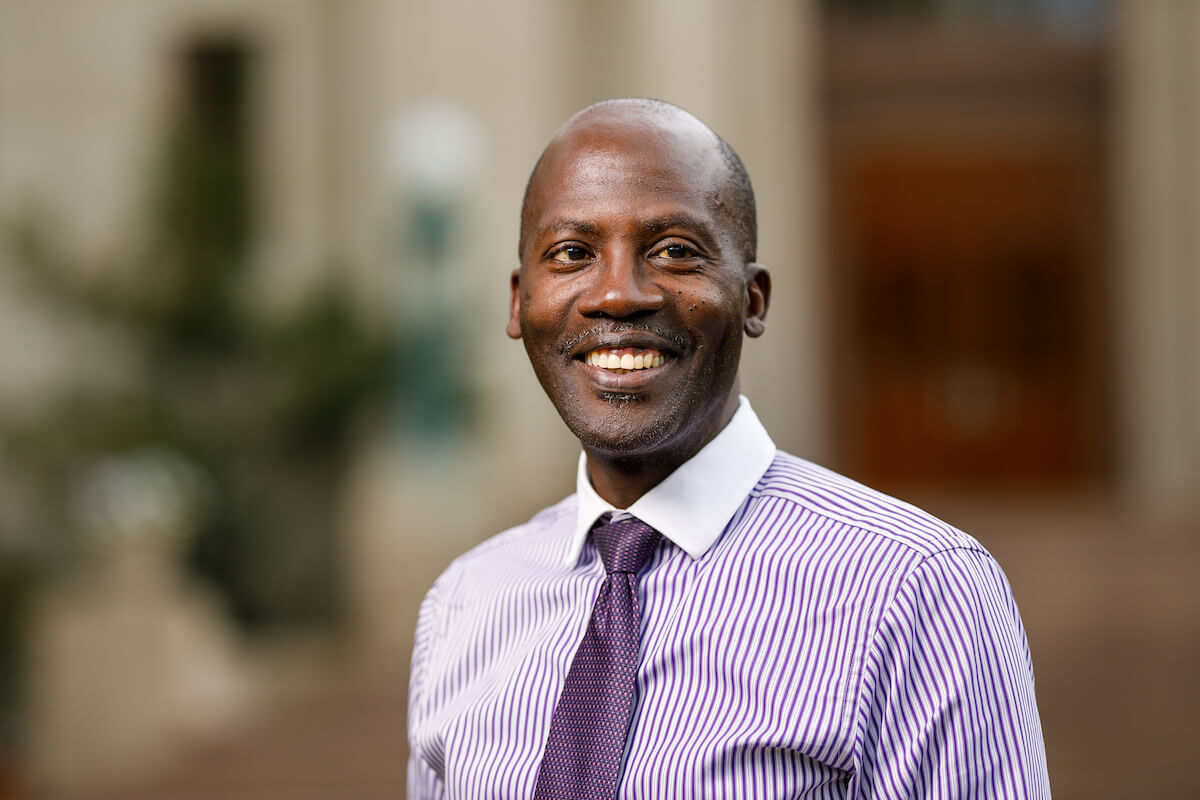
John Odhiambo Onyango, Ph.D. is an academic, scholar and is currently an Associate Professor of Architecture at the School of Architecture, University of Notre Dame (USA). He has a Doctor of Philosophy degree in Architecture from the University of Glasgow (Scotland, UK); a Master of Architecture degree from University of Notre Dame, (USA); Certificate in Professional Practice & Management in Architecture (RIBA Part 3-Architect's License in the United Kingdom) from the Bartlett School of Architecture, University College London, (England, UK) and a Bachelor of Architecture (honors) degree from University of Nairobi (Kenya).
John’s research primarily focuses on Sustainability in the broad sense that takes holistic approaches to the creative practices at the building and urban design levels that is both interdisciplinary as well as multidisciplinary in collaboration with other colleagues in the allied fields such as engineering, sociology, healthcare, and IT communications. The CIB working paper for “W108: Climate Change and the Built Environment” suggested future research should focus on two main hazards: floods and heat waves. These two areas continue to be active research areas. He has participated in over 9 research projects worldwide and since 2012 secured over $405k in competitive research grants equivalent to $101.3k annually between 2012 and 2016.
Current Research Interests:
- Understanding Energy Use in Traditional Buildings using Simulation and Biomimetic Epidemiology
- Built Environment and Aging & Wellbeing
Research Statement
At Notre Dame, I lead an interdisciplinary lab BUILD+PERFORM@ND that aims to understand causes and consequences of design decisions and their impact on the environment and people’s health and well-being. It uses evidence-based research to study the design, construction and operation of Sustainable Traditional Buildings and Cities. My research focuses on understanding influences behind design decisions and impacts of such decisions upon the built environment and human health and happiness (Figure 1). It asks: (1) How do design methodologies influence sustainable place-making in the built environment? (2) What impacts do design decisions and methods have on sustainability in energy and environmental performances at the urban and building levels? (3) How do design decisions of the built environment promote human health, dignity and integral development?
Future Direction
My future research explores: (1) the intersection of the design of building envelopes and the impact on energy and environmental performances; (2) how well might society accept novel reactive refrigeration systems in comparison to existing systems? (3) leverage knowledge of design thinking
I am a co-thrust leader in the $13.6 million proposal for the Gen-4 Energy Research Center (ERC) program, EARTH (Environmentally Applied Refrigerant Technology Hub), to create the first sustainable refrigerant lifecycle engineered system that tackles the technical, environmental, and societal challenges of the heating, ventilation, air-conditioning, and refrigeration (HVACR) industry in the face of global warming. A collaborative effort of six universities (University of Hawai’i, Kansas University, Lehigh University, University of Maryland, University of Notre Dame, and University of South Dakota), industry partners, community stakeholders, and national laboratories.
Since July 2022, I have been carrying out research on evidence-based analysis with a holistic look at the sustainability of traditional architecture from the perspective of End-Use Energy Intensity (EUI) performances, Environmental Air Quality (EAQ) impacts, and Life Cycle Assessment (LCA), among other emerging matrixes. I have collected data from select buildings in the UK, Spain, Portugal, India, Kenya, UAE and US. The research will be published in book form as Sustainability of Traditional Architecture: Evidence-Based Analysis from Buildings across the Globe (Palgrave Macmillan) in 2024 or 2025.
Areas of Expertise
- Architectural Technology/Building Technology
- Built Environment and Health
- Community Building
- Environmental Psychology
- Residential Design
- Sustainable Architecture and Urbanism
- Urban Design